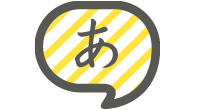No. 1 Analyze yourself and discover your strong points!
“Self-analysis” is essential for job hunting in Japan. Self-analysis means understanding your strong points.
Through self-analysis, try to recognize your strong points as an international student, and then utilize these to find a job.


Recognize your strong points that companies are looking for through self-analysis
Many Japanese companies hire international students because they want to hire skilled human resources to handle work that requires foreign language ability, as well as work that makes the most of their unique global sensibilities.
For example, one strength of international students from English-speaking countries is their ability to correctly understand English and translate it into Japanese.
For companies that want to hire people who can translate Japanese into English, people with this ability are very desirable.
Therefore, when it comes to job hunting, it is important to match the strengths you have recognized through self-analysis with what companies want.

Purpose of self-analysis
In job hunting, you are often asked “What are your strengths?” and “How would you advertise yourself?”
This is done to determine your competence and to see if you are a talented person who will be successful in the future. Self-analysis is for recognizing your strengths so that you can answer these questions effectively.
It also helps to clarify your stance and mindset, and to determine if the company is a good fit for you.
Self-analysis method
When conducting a self-analysis, first create a “personal history” where you write down the experiences that have left an impression on you, and a “motivation graph” that shows the how your motivation moves up and down.
When creating these, ask yourself, “Why did I take a certain action?” when you look at past experience.
By repeatedly asking “why,” you will be able to recognize your “abilities” and what “motivates” you to take action. In self-analysis, it is important to put this into words to explain your strengths to the interviewer.
Conclusion
Identifying your strengths and preferences through self-analysis will make the job hunting process go smoother.
This is because it makes it easier to find a company that is right for you, and you will be able to appeal your strengths during the interview. Continue working on self-analysis before job hunting.
■The contents provided in these articles are for informational purposes only.
Therefore, the reader must use discretion and take responsibility when using the information in these articles.
The Tokyo Metropolitan Government, the administrator, and the management office shall not be responsible for the results of applying the contents of the articles.
■The information in these articles is current as of January 2020. Keep in mind that there may be changes at the time it is used.
.jpg)











